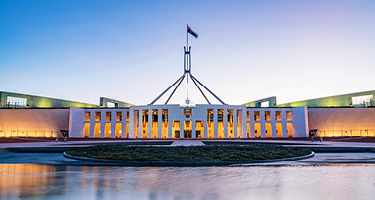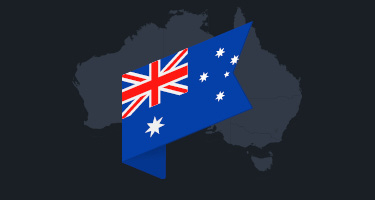Global trade policy has taken a seat at the head of the geopolitical table as the 2020s round into form. It’s therefore useful to take stock of current trends, the better to speculate about the likely evolution of trade law and policy throughout the Asia-Pacific region (APAC) in the years ahead.
COVID-19 has dramatically illustrated the critical importance of cross-border supply chains in an interconnected world. Global businesses continue to contend with restrictions on the movement of personnel and goods, as well as unexpected disruptions to operations, transport , market access, and product availability—as the current worldwide shortage of semiconductors, and its significant impact on automobile production makes all too clear.
Developments far beyond the pandemic will make an impact on world trade in the decade ahead, though. Technological innovation continues to drive global e-commerce and ever greater cross-border data flow. Many countries are focusing anew on social and environmental concerns, such as human rights compliance at every stage of the supply chain (codified in many cases under a growing number of Modern Slavery Acts) and climate-change mitigation. Recent years have also witnessed a resurgence of economic nationalism and geopolitical stoushes— Brexit is a prime example, along with heightened trade tensions between the United States and China.
Staying up to date on and engaged with international trade rules, as well as countries’ domestic trade policies, has never been more important for businesses as they navigate this multidimensional and increasingly complex global order. Australian businesses, in particular, have witnessed geopolitical tensions made manifest in the form of trade disputes, with a flurry of World Trade Organisation (WTO) contretemps emerging over the last 12 months between Australia and China in relation to barley, wine, and steel.
Can We Be Optimistic?
As the WTO’s 30th anniversary approaches, its evolution has slowed. As such, there’s a mismatch between the organisation’s rules and the changing scope of global trade. WTO regulations don’t yet sufficiently address digitally delivered services, even though they now account for more than 50 per cent of trade in global services and roughly 15 per cent of the world’s goods-and-services exchange. WTO rules likewise barely cover foreign investment even though it’s now the cornerstone of modern commerce, and only superficially address climate change and the transition to cleaner energy, which will be a focal point of both governments and businesses seeking to meet Paris 2050 targets for at least the next decade.
Nonetheless, we can be optimistic. The global trading system is dynamic and resilient. Delays at the multilateral level have led to workarounds via a proliferation of regional and bilateral trade agreements, which often feature unique innovations of their own. International trade and investment offer sufficient opportunities and protections for businesses, although those wishing to resolve trade disputes must increasingly seek solutions within a complex patchwork of bilateral and regional agreements.
In this context, “mega-regional” trade pacts, such as the Trans-Pacific Partnership (TPP) and the Regional Comprehensive Economic Partnership (RCEP), have emerged as critical tools for countries to address the next generation of trade concerns. These agreements are recalibrating the rules governing digital trade, foreign direct investment, and intellectual property; they also provide an important forum in which to address the trade effects of social and environmental policies, as well as a wider safety net for businesses amid geopolitical tensions.
The TPP, for example, encompasses the broadest scope and most liberalised trade commitments ever made—which explains why accession to the pact has been a top priority for the United Kingdom post- Brexit. Even the United States, despite its high-profile TPP withdrawal during Donald Trump’s presidency, nonetheless sought to replicate its liberalised market access and regulatory terms in the United States-Mexico-Canada Trade Agreement (USMCA), the successor to NAFTA, the North American Free Trade Agreement, which had been in force since 1994.
Staying up to date on and engaged with international trade rules, as well as countries’ domestic trade policies, has never been more important for businesses as they navigate this multidimensional and increasingly complex global order.”
Navigating the Trade of Tomorrow
What can we expect over the remainder of the 2020s? In essence, a more nuanced and complex trade environment, but also a corresponding evolution of intergovernmental measures to assist business and facilitate market access.
Regarding social and environmental policies, many countries seek to implement measures that influence global trade within the parameters of existing rules. One example is the proactive measure of Modern Slavery Acts to combat human-rights violations along supply chains. Another is the more aggressive approach to emissions reduction adopted most notably by Canada, the European Union, Japan, the U.K., and the U.S.—which have foreshadowed the introduction of a carbon price on traded goods in the form of border carbon adjustments. Businesses operating worldwide will need to stay apprised of these evolving domestic laws and their potential cross-border impact.
At the same time, the previous American administration and the pandemic offered a reminder of how quickly mercantilism can reappear, often within the boundaries of existing trade rules. In the last 18 months or so, national-security and health-and-safety concerns have overtaken more-liberal trade policies, leading to greater restrictions on cross-border investment and movement of people; tightening rules on exports of essential goods such as vaccines, semiconductors, and rare-earth metals; and increasing concerns regarding data sovereignty.
These developments further highlight the importance of trade agreements to ensuring that national legislatures formulate their domestic policies with regard to the greater global interest in maintaining smooth cross-border trade. Businesses operating in markets more susceptible to political influence, though, should be aware that if market access isn’t secured in binding treaties, it can be quickly undone when global circumstances and national interest conspire.
Certainty in an Uncertain World
The trade environment of the 2020s will be marked by rapid change. Pandemic aftershocks, ongoing tensions between China and its trading partners, the push to meet Paris Agreement environmental targets, and growing national-security concerns about data, semiconductors, and rare earths will all contribute to persistent regulatory uncertainty.
Business should expect that governments will employ trade policy more aggressively than in the past, both to protect local producers and pursue broader strategic goals. Companies must also anticipate less certainty in their supply chains and may need to adjust them quickly to adapt to changing circumstances. Finally, businesses should be prepared for the imposition of a growing list of domestic obligations, whether Modern Slavery Act concerns, border adjustments, or regulation of data collection and use.
Nations are once again calling upon venerated mechanisms such as the WTO’s dispute-settlement system, pursuing and expanding new trade treaties, and exploring fresh approaches to trade liberalisation. For all these reasons, international trade law and governments’ trade policies must remain front of mind for companies that operate across borders. Trade agreements provide a modicum of certainty and stability in a world increasingly deficient of each.
What, then, does all this mean in practice?
- Businesses should continually monitor developments in international trade law, which is more fluid today than in many years, and must inform investment decisions as well as the structure of global value chains accordingly.
- Companies in the APAC region should follow the lead of their American counterparts, which have become key contributors to the trade-policy conversation—whether publicly or through direct channels—in an effort to ensure that outcomes are consistent with industry requirements.
- Firms should expect to be called upon to help governments engage effectively with the WTO’s dispute-settlement process—either grounding or defending claims whose outcome will affect their industry.
Global conditions and rules are changing rapidly, but uncertainty goes hand in hand with opportunity. Now is the time for businesses to engage with global trade policy and use trade rules to their advantage.
Dr Martyn Taylor is a partner at Norton Rose Fulbright Australia. He leads the international trade group in the Asia-Pacific. He is also the Treasurer of the international section of the Law Council of Australia. Martyn advises extensively on cross-border market access and commercial arrangements, as well as international trade regulation. Martyn has a particular focus on trade in technology and services and also advises on trade disputes, export controls/sanctions, anti-dumping, and investigations. He has specific expertise in World Trade Organisation law and Trade Agreements, including holding a PhD in international trade law.
Jo Feldman is a special counsel at Norton Rose Fulbright Australia. She has worked as an international lawyer and treaty negotiator for the Australian Government, including as lead legal counsel on the Trans Pacific Partnership, and legal counsel on FTAs with China, the EU, Japan, Korea, Malaysia, New Zealand, Singapore, and the UK. She worked as a senior dispute settlement lawyer at the World Trade Organisation; was a senior lawyer on the team defending Australia’s first investor-State arbitration claim, and five WTO disputes, bought against Australia’s Tobacco Plain Packaging legislation; and has extensive experience in WTO disputes, including disputes between the US and China over antidumping, rare earths, intellectual property, and digital products.
Daniel Allman is a senior associate at Norton Rose Fulbright Australia. He specialises in cross-border dispute resolution and represents clients in international commercial and investment arbitration, including under bilateral investment treaties and free trade agreements, as well as complex commercial litigation. Daniel is dual-qualified in New York and Australia, and has experience in energy, finance, infrastructure, and oil and gas, among other industries. He serves as Regional Chair for Oceania on the board of Young ITA, the young practitioner branch of the Institute for Transnational Arbitration.
































